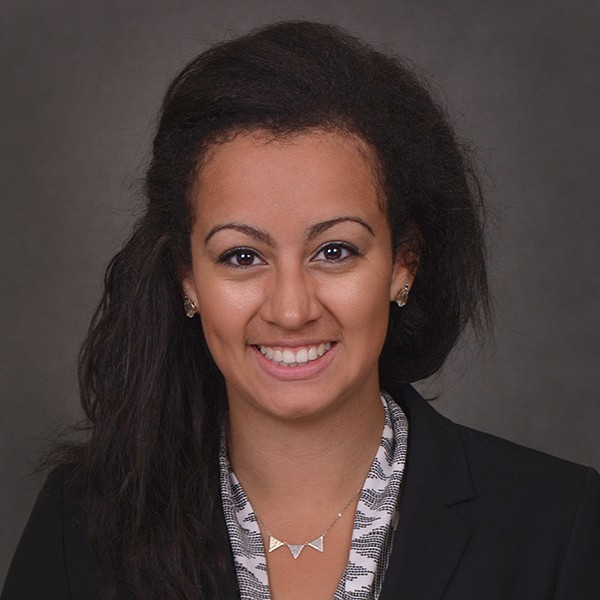Tatiana Rice

Tatiana Rice
Why did you choose to attend UNI? What factors influenced your reason for studying your major?
UNI first and foremost was the most cost-effective option for me as a first-generation student. I was lucky enough to receive scholarships both academically and for athletics. I also chose UNI because I was impressed with the balance of opportunities available with smaller class sizes. I wanted to feel confident about having the capacity to build relationships with professors and other campus professionals.
What factors influenced your decision to go to law school?
Ironically enough, a career aptitude assessment I completed in one of my classes at UNI first prompted my consideration for a legal career. As I continued to learn about the legal system through classes, I became more aware of the many injustices and problems we face; and how addressing many of these issues is best accomplished through the law–whether through lawyers or policymakers. I also became good friends with another classmate in my major (Haley Harlen (previously Hasenstein)) who was thinking about pursuing law school and she also heavily impacted my decision-making process.
What do you do in your current position? What do you enjoy about it?
I currently serve as Policy Counsel at a DC-based think-tank focused on technology law and policy. In my role, I provide counsel to state and federal policymakers on legislation, and analyze trends in varying technologies and laws.
I absolutely adore my job. I get to examine future-looking and nuanced issues that affect our society, such as the use of discriminatory algorithms that violate civil rights laws, and play a role in effecting change.
How did UNI’s pre-law program help you prepare for and apply to law school?
Professor Peters played a crucial role in helping me prepare for and apply to law school in ways that I likely would not have received at a larger institution. For example, he worked with me one-on-one over the course of a few weeks to help me develop ideas and perfect my admissions essay. Without that close relationship and his detailed feedback and support, I don’t believe I would have been able to receive 3 full-tuition scholarships to prominent law schools.
The classes I attended between criminology and the pre-law course load also helped me develop the necessary critical thinking skills to pursue this kind of career and spark my interest in the area.
How did your major help prepare you for your current role? What skills are you still using today?
My criminology major with the pre-law program was a perfect mix for me. With criminology, I learned so much about the social and political aspects of our legal system, and how the system as a whole functions in our society. With the pre-law program, I received the more detailed and technical knowledge about legal concepts and procedures.
Writing and critical thinking are the most important skills in my job. With the pre-law program in particular, I was able to develop my writing.
What is a memorable part of your studies or participation within your major?
One of the most formative experiences I’ve ever had was a summer program where students from UNI attended a pre-law program in China with law students from other countries like Germany, Thailand, France, Australia, and Vietnam. We not only learned about differences in the Chinese legal structure, but also about the social and legal issues faced by other countries based on our interactions with the other international students. To this day, I am still connected with many people from around the world due to the program; and I still talk about the experience and how it has impacted both my professional and personal perspectives.
What advice would you give to students currently interested in the same major and/or thinking about going to law school?
I would highly recommend law school, particularly if you are someone that is intellectually curious and is deeply interested in social and political issues, even if you don’t want to be a lawyer. In my current job, I am technically not a practicing lawyer, but my legal knowledge better positions me to understand law and policy.
But it’s really really important to weigh your options carefully. I had a great experience in law school because I chose a school that was cost-effective, provided me opportunities, but most importantly, reflected my values. As a result, I met some of my best friends in law school and have been able to network with others from school who do similar work. Many people don’t have the same experience with their law school tenure and attend schools that have an extremely toxic culture.
During undergrad, it’s also really important to do extracurricular activities that will assist you in developing the skills that you’ll need in the future. For example, on top of my normal coursework, I was also engaged in debate at UNI, which played a huge role in many skills I still use today, including critical thinking, public speaking, and reading comprehension.
Is there anything else you would like to add or share?
Happy to provide any additional information or virtual conversations with students considering pre-law or law school. Contact scott.peters@uni.edu to be put in touch!
